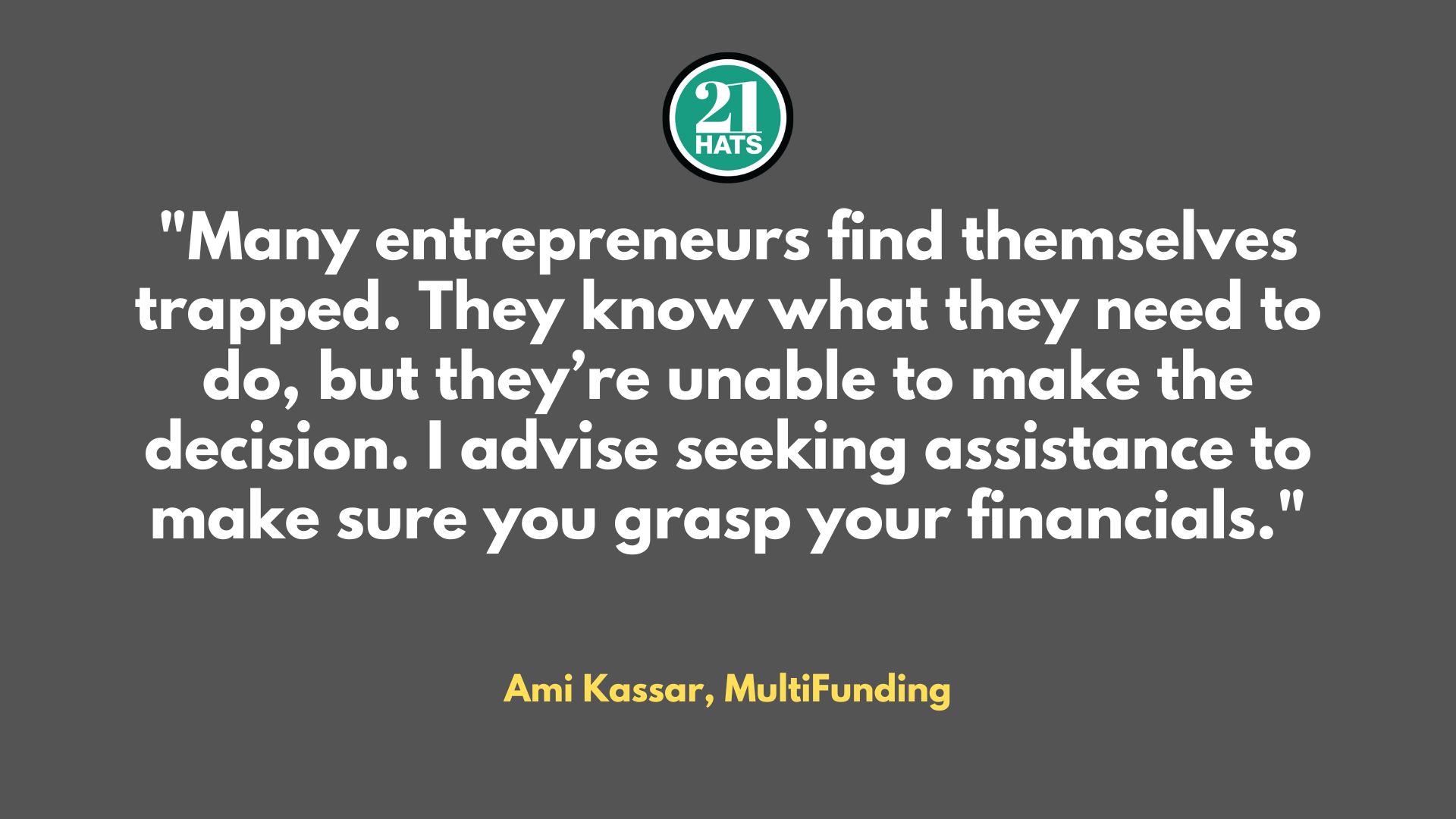Embracing the Uncomfortable

Pushing your business to the next level often involves difficult choices. Do you know everything you need to know?
By Ami Kassar
Entrepreneurs often feel uncomfortable when taking their businesses to the next level. The fear of the unknown and the anxiety surrounding whether we are making the right choices can be paralyzing. We see this every day in our work.
This post is the first in a series I plan to write to dig into stories about “embracing the uncomfortable” over the next few weeks. One story will be about a friend who owns a pool company. He frequently has to turn down business because of his company’s limited capacity. To expand, he must invest time and money in building his management team and support staff. That’s a tough transition, because he has so much on his plate today, managing his current workload. Every day is a choice between working in the business or on the business.
Another friend owns a contractor company and needs help with messy bookkeeping, accounting, and accounts receivable. Although he recognizes the need for change, he feels emotionally tied to the person currently handling accounting, who has been a loyal employee since day one. Breaking that cycle when the job outgrows an employee is never easy.
In contrast, a woman I recently coached has taken important steps to expand her business geographically. But she’s now feeling apprehensive about the way her role within the company has changed. Suddenly, other people are doing the things she used to do, and she’s struggling to let go. Concerned about both finances and quality control, she is feeling real anxiety about the transition.
Balancing Rationality and Emotion
If we want to propel our businesses forward, we must balance the demands and needs of our rational and emotional sides. No matter how much we want to see our companies grow and evolve, decision-making is a complex process. It involves reconciling our feelings, emotions, and egos with practical considerations such as spreadsheets, models, and forecasts.
Unfortunately, many emerging companies struggle with basic bookkeeping, let alone their projections and forecasts, which is a real problem when these companies try to assess their options. It’s much harder to take the next step if you don’t have a clear understanding of the financial implications. And living through the transition gets even more difficult without a real understanding of how the changes might affect the numbers.
Many entrepreneurs find themselves trapped. They know what steps they need to take next, but they’re unable to make the decision. I advise taking a deep breath and seeking assistance to make sure you grasp your financials. Consider working with a fractional CFO who can help you analyze your options and develop a comprehensive projection for your financials and cash flow.
Building Scenarios and Planning Ahead
During this process, I find it’s helpful to create three scenarios: the worst-case, middle-ground, and best-case outcomes. You can prepare for contingencies and mitigate risks by envisioning what is likely to happen if nothing you try works. At the same time, exploring the best-case scenario can bring additional motivation and resolve.
As you work through these scenarios, consider the potential benefits of taking out a loan to provide cushion and comfort during the transition. Think of it as an insurance policy that can alleviate concerns and provide stability as your company evolves. That said, I don’t think funding changes like this through a line of credit is a good idea. Lines of credit are there for seasonality, for working capital—and for emergencies. Term debt is a better tool when making investments, even when the investments are in people.
Armed with the information that caters to both the logical and emotional aspects of your decision-making, you can make more informed and confident choices about the next steps for your business. By balancing your rational and emotional instincts, understanding the financial implications, and seeking professional assistance, you can navigate the discomfort and propel your business toward further growth and success.
I look forward to digging into these stories with you over the next few weeks.
Ami Kassar is CEO of MultiFunding.